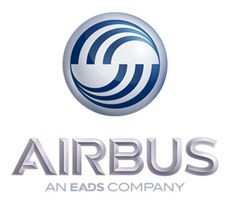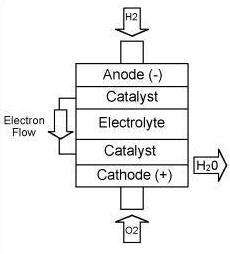Thu, Jun 23, 2011
Working Towards Greener Replacement For Ground, Airborne APU
Systems
 Based on its ongoing engagement
with global research programs, Airbus says it is extending the
scope of its fuel cell R&T activities by partnering with Parker
Aerospace to develop fuel cell technology as an alternative energy
source for on-ground and in-flight electrical power .
Based on its ongoing engagement
with global research programs, Airbus says it is extending the
scope of its fuel cell R&T activities by partnering with Parker
Aerospace to develop fuel cell technology as an alternative energy
source for on-ground and in-flight electrical power .
Within this partnership Airbus will be responsible for the
overall aircraft system architecture and technology integration
into the aircraft, and Parker will supply the multifunctional fuel
cell system and manage different subsystem suppliers.
The objective of the cooperation is the development of a
technology demonstrator followed by a joint flight test campaign
for the middle of the decade, including operational and
infrastructural tests. With Parker Aerospace involved in the
project from this earliest phase, industrialisation can be
considered throughout the development of the process, rather than
at the end.
“Airbus is pursuing engagement of competent industrial
research partners in the field of fuel cell applications,”
says Axel Krein, Senior Vice President Research & Technology at
Airbus. “With Parker Aerospace we have a strong partner with
excellent competencies in multifunctional system integration. Their
engagement in this research activity underlines the potential of
fuel cell technology as an alternative energy source for electrical
on-board power generation. Together we are now entering a joint
development phase, bringing fuel cell research activities for our
industry on a global level and shape the future of the next
generation of eco-efficient airplanes.”
“Parker is pleased to be recognized by Airbus for our
broad technology competency,” said Mark Czaja, Group Vice
President of Technology and Innovation for Parker Aerospace.
“Airbus is an industry leader in the implementation of
eco-efficient fuel cell technologies for aircraft. By leveraging
our integration capabilities across the many aircraft systems we
develop, together we can advance aircraft fuel cell technology in
support of this game-changing flight test demonstration
program.”

Together with its research partners, Airbus successfully
performed the first flight test on a civil transport aircraft in
2008, where a fuel cell system provided power for the
aircraft’s back-up systems. As a next step, Airbus is
currently investigating the application of multifunctional fuel
cells as a replacement for the Auxiliary Power Unit (APU) to power
any electrical consumer of the aircraft, e.g., the cabin. This
would enable the replacement of ground power units leading to an
emission free ground operation and significantly reduce mission
fuel consumption.
More News
A Puff Of Smoke Came Out From The Top Of The Engine Cowling Followed By A Total Loss Of Engine Power On May 9, 2025, about 1020 mountain daylight time, an experimental amateur-buil>[...]
From 2022 (YouTube Edition): Jenny, I’ve Got Your Number... Among the magnificent antique aircraft on display at EAA’s AirVenture 2022 was a 1918 Curtiss Jenny painstak>[...]
Very High Frequency (VHF) The frequency band between 30 and 300 MHz. Portions of this band, 108 to 118 MHz, are used for certain NAVAIDs; 118 to 136 MHz are used for civil air/grou>[...]
“From approximately November 2021 through January 2022, Britton-Harr, acting on behalf of AeroVanti, entered into lease-purchase agreements for five Piaggio-manufactured airc>[...]
From 2008 (YouTube Edition): US Fish and Wildlife Service Chooses The Kodiak To Monitor Waterfowl Populations Waterfowl all over North America may soon have to get used to a new ab>[...]
 NTSB Prelim: Lee Aviation LLC JA30 SuperStol
NTSB Prelim: Lee Aviation LLC JA30 SuperStol Classic Aero-TV: Curtiss Jenny Build Wows AirVenture Crowds
Classic Aero-TV: Curtiss Jenny Build Wows AirVenture Crowds ANN's Daily Aero-Term (05.30.25): Very High Frequency (VHF)
ANN's Daily Aero-Term (05.30.25): Very High Frequency (VHF) Aero-News: Quote of the Day (05.30.25)
Aero-News: Quote of the Day (05.30.25) Classic Aero-TV: Quest Kodiak Enhances Migration Monitoring Programs
Classic Aero-TV: Quest Kodiak Enhances Migration Monitoring Programs




